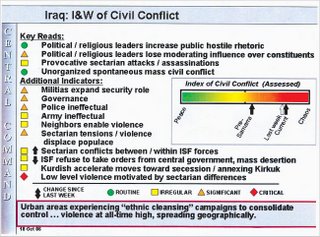No citizenship out of sectarianism
The latest shocking campaign includes bogus billboards and ads with a blatantly sectarian content. It takes a while to realize that they are fake. Or maybe they're not?




"WHO SHALL COMMAND THE SKYLARK NOT TO SING?" (KAHLIL GIBRAN)






The UN Security Council today condemned the assassination of Pierre Gemayyel and considered it a "violation of Lebanon's sovereignty" (!?). The same Security Council did not condemn the Israeli invasion of Lebanon and did not consider it a violation of Lebanon's sovereignty.4. This assassination comes in a moment of political turmoil when the Saniora-Hariri cabinet is very shaky. Six Shi'a cabinet ministers resigned last week in protest about the call for the institution of an international court that would judge the alleged killers of former prime minister Rafiq al-Hariri. The resignation, which leaves the cabinet grossly unrepresentative of the complex fabric of the Lebanese society, actually revolves about the failure of the "national dialogue" (al-hiwar al-watani) initiative.
